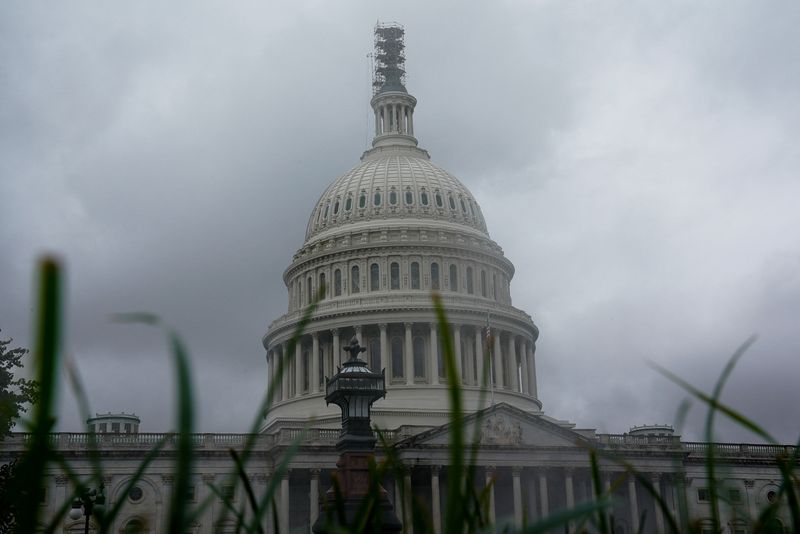
© Reuters. Rising steam partially obscures the U.S. Capitol building in Washington, U.S., September 24, 2023. REUTERS/Elizabeth Frantz/File Photo
By David Morgan
WASHINGTON (Reuters) – Members of the U.S. Senate and U.S. House of Representatives are expected to begin bipartisan talks soon on fiscal 2024 spending, aiming to head off a partial government shutdown when funding begins to run out in mid-January, lawmakers said on Tuesday.
Congress has twice in the last two months allowed the government to come close to partially shutting down for a lack of funding, which would leave up to 4 million federal workers without pay and close a vast swath of government operations.
A senior Republican member of the House Appropriations Committee said there could be agreement this week between House and Senate leaders on a top-line spending number for the fiscal year that began on Oct. 1, saying such a deal would serve as a starting gun for bipartisan conference negotiations on spending bills.
“You actually conference for the number you’ve got at that point,” said Representative Tom Cole, who chairs the House Appropriations subcommittee for transportation, housing and urban development.
Cole said the top-line deal would come from the four top congressional leaders: House Speaker Mike Johnson, Senate Majority Leader Chuck Schumer, Senate Republican leader Mitch McConnell and House Democratic leader Hakeem Jeffries – who he said could reach agreement this week.
He expected the amount to be close to the $1.59 trillion that President Joe Biden and former Speaker Kevin McCarthy set with their debt ceiling deal in May.
Congress has just over a month to agree on bipartisan spending legislation if it is to avert a government shutdown on Jan. 19 when funding for some federal agencies is set to expire. Funding for other agencies will expire on Feb. 2. A government shutdown in January would coincide with the start of the presidential primary election season.
Despite passing seven out of 12 partisan spending bills for 2024, House Republicans have been unable to reach agreement on the remaining five due to infighting over demands by hardliners for steep spending cuts and conservative policy riders that Democrats view as poison pills.
Meanwhile, the Senate has been able to pass only three appropriations bills.
House Republican disagreement over spending prompted hardliners to oust McCarthy from the speakership on Oct. 3. But hardline Republicans have since agreed to spending at or near the Biden-McCarthy spending level.
Republican Representative Mike Simpson, chairman of the House Appropriations subcommittee on interior, environment and related agencies, said House and Senate lawmakers need a top line agreement to move forward on a plan to negotiate spending legislation during their upcoming three-week year-end break.
“We better get one fairly soon, if we’re going to be negotiating over the holidays,” Simpson said.
Source: Investing.com




























